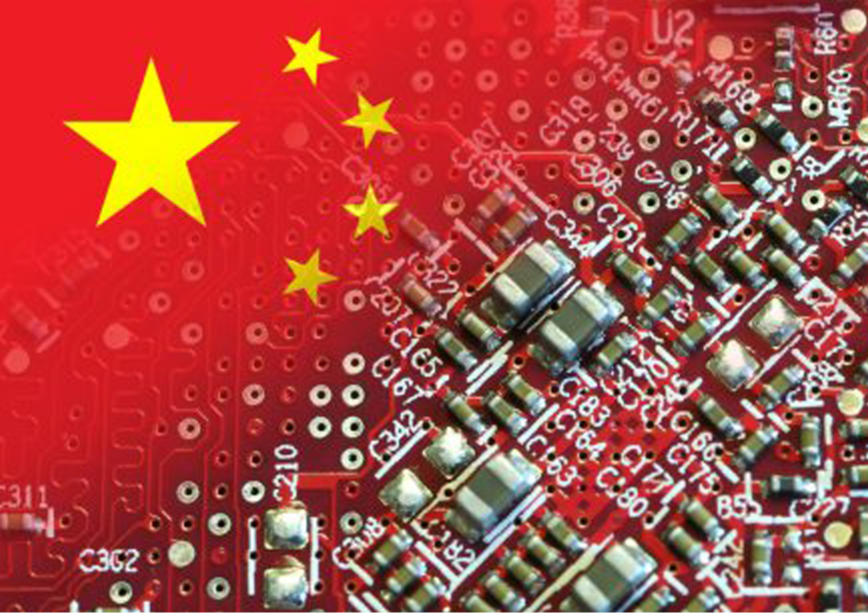In late March, the Biden administration released revised rules that will further tighten China’s access to U.S. artificial intelligence (AI) chips and chip-making tools. The U.S. imposed a series of export control measures first in October 2022 with the goal of restricting China’s access to advanced AI chips made with U.S. inputs. These measures were designed to constrain China’s efforts at military modernization and safeguard U.S. national security interests. A year later in October 2023, the U.S. Department of Commerce’s Bureau of Industry and Security came up with updated rules with the goal “to maintain the effectiveness of these controls, close loopholes, and ensure they remain durable.”
The October 2023 rules were revised further on March 31, 2024. According to a Reuters report, the revised rules will come into effect within a week. The Commerce Department, which administers export controls, reportedly said that “it plans to continue updating its restrictions on technology shipments to China as it seeks to bolster and fine-tune the measures.” According to media reports, these revised rules will also affect laptops that contain these advanced chips. The revised rules come in against the backdrop of Commerce’s suspension of license of dozens of U.S. suppliers that sell chip-making materials and parts worth millions of dollars to China’s Semiconductor Manufacturing International Corp (SMIC). This step was taken after SMIC developed the new generation 7 nanometer (7nm) chips for Huawei. Meanwhile, various provincial governments in China are ramping up subsidies for chip manufacturing and both SMIC and Huawei appear to be gaining a lot from them. In Shanghai, 191 major projects are set to be subsidized, of which two are SMIC’s 300mm production lines, which are currently in the construction phase.
The revised rules come in against the backdrop of Commerce’s suspension of license of dozens of U.S. suppliers that sell chip-making materials and parts worth millions of dollars to China’s Semiconductor Manufacturing International Corp (SMIC).
Reportedly, the U.S. is also planning to put together a list containing advanced Chinese chip factories that will be barred from gaining access to American technology. The list is meant to aid better compliance with U.S. sanctions.
Of course, China is not pleased with these new restrictions. China has criticized the latest moves by saying it will “disrupt the international semiconductor market as well as cooperation among enterprises.” A Global Times story referred to a Chinese Ministry of Commerce statement that “The abuse by the US of national security concepts, reckless modification of rules and tightening of control measures have not only set up more obstacles to normal economic and trade cooperation between Chinese and US enterprises and imposed a heavier burden for compliance, but also created huge uncertainty for the global semiconductor industry.” The Chinese Ministry of Foreign Affairs also did not respond kindly to the latest round of rules. Foreign Ministry spokesperson Lin Jian asked “the US to immediately correct its wrongdoings and stop its illegal unilateral sanctions and long-arm jurisdiction against Chinese companies.”
Meanwhile, China is reported to be taking steps that will essentially block the use of American processors and instead use Chinese chips for government computers. China is said to have “issued guidelines to phase out American processors from the likes of AMD and Intel, in favor of domestic chips for government computers.” According to the new Chinese guidelines, government offices and Chinese Communist Party entities “above the township level” are to use “safe and reliable” systems including processors and operating systems. Accordingly, China’s Information Security Evaluation Center has announced the first list of “safe and reliable” processors and operating systems, developed by Chinese companies, including Huawei and Phytium, both of which are blacklisted under US export control regulations.
While the U.S. government has been successful so far in getting its companies as well as allied partners to comply with tighter regulations, Western companies are not particularly happy at the prospect of losing China’s business. Nvidia, for instance, used to have a 90 percent share of China’s AI chip market and the company head, Jensen Huang reportedly had said in June last year that continuing U.S. export control regulations “will lead to permanent loss of opportunities for the US industry.” ASML, another critical player in the chip and semiconductor industry also raised some concerns. ASML CEO Peter Wennink is reported to have said that cutting off China will essentially drive innovation in China, meaning that China can become quite competitive at the cost of others. Speaking to media, he said, “There are 1.4 billion Chinese, many of them smart. They come up with solutions that we have not yet thought of. You force them to become very innovative.”
China is said to have “issued guidelines to phase out American processors from the likes of AMD and Intel, in favor of domestic chips for government computers.”
But the October 17, 2023, revised rules are clear about U.S. concerns over how China plans to use advanced AI capabilities. The revised rules of October 2023 said “advanced AI capabilities—facilitated by supercomputing, built on advanced semiconductors— present US national security concerns because they can be used to improve the speed and accuracy of military decision making, planning, and logistics. They can also be used for cognitive electronic warfare, radar, signals intelligence, and jamming.”
As long as the great power rivalry between the U.S. and China persists and China continues to utilize these advanced technologies for sharpening the PLA’s combat power, it is unlikely that the U.S. will slow down or relax on these export control curbs. Business, trade and technology interests may complain, and they may have a point about the economic illogic of these growing restrictions, but political interests will ultimately trump such concerns.
This comentary originally appeared in The Diplomat.
The views expressed above belong to the author(s). ORF research and analyses now available on Telegram! Click here to access our curated content — blogs, longforms and interviews.




 PREV
PREV


